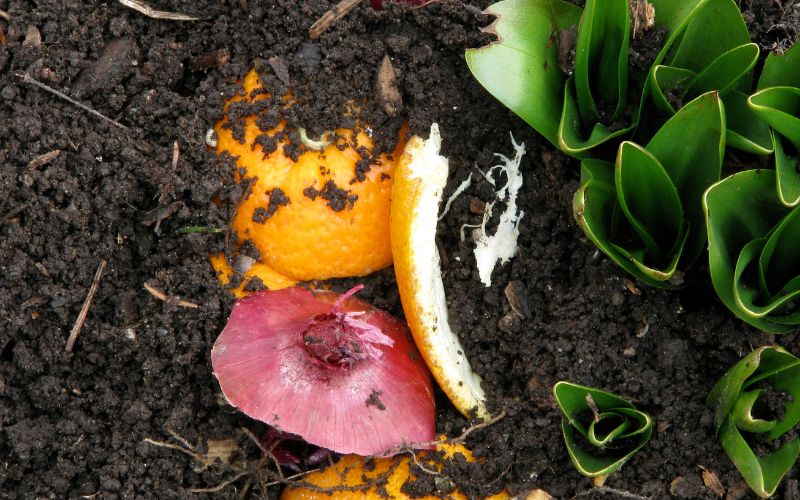Composting improves the health of soil and minimizes waste. If you want to put your compost to use in the garden sooner, use these three beginner tips for speeding up composting.
1. Maintain the Ratio of Greens to Browns
Compost requires nitrogen and carbon to work properly. Brown materials contain ample carbon and tend to be brown or naturally turn brown. They include dry and woody plant material, such as pine needles, straw, corn stalks, clean corrugated cardboard, and autumn leaves.
Green materials supply compost with nitrogen. They are often green or come from a green plant, though this isn’t a requirement. Green materials include grass clippings, fruit and vegetable scraps, coffee grounds, and tea leaves.
Maintaining a healthy ratio of greens to browns will improve decomposition. You may start with four parts brown to one part green, but you can experiment to find the right ratio for your pile.
2. Make Materials Smaller
Another beginner tip for speeding up composting is to shred and chop materials into smaller pieces. Shred brown materials such as newspaper, napkins, coffee filters, and corrugated cardboard. The shredded pieces will allow for more air pockets in the compost pile, which will hasten decomposition.
You can also compost tough and fibrous fruit and veggie parts. One of the benefits of composting pineapple cores, for instance, is that the cores improve the ability of water and nutrients to permeate the soil. Cut tougher plant matter into smaller pieces to increase their surface area and improve the decomposition rate.
3. Turn the Compost Pile
Turning compost is the act of mixing the compost materials. It helps to further break ingredients apart and distribute them evenly throughout the pile. Turning compost helps push more oxygen into the pile, improving aeration from the top to the bottom. Turning also pushes organic material back to the center of the pile to improve microbial activity.
In general, you can turn over a compost pile every three to seven days. The more green content in your pile, the more often you should turn it to improve ventilation. Once most of the material is decomposed, you can turn it less frequently.

Show Your Support
Take any of the following actions to stay involved and help us reach our goals. Subscribe to our newsletter, and follow us on social: Facebook, Facebook Group, Instagram, Twitter, Meetup, and Linkedin. Subscribe on YouTube and help us reach 1,000 subscribers.



